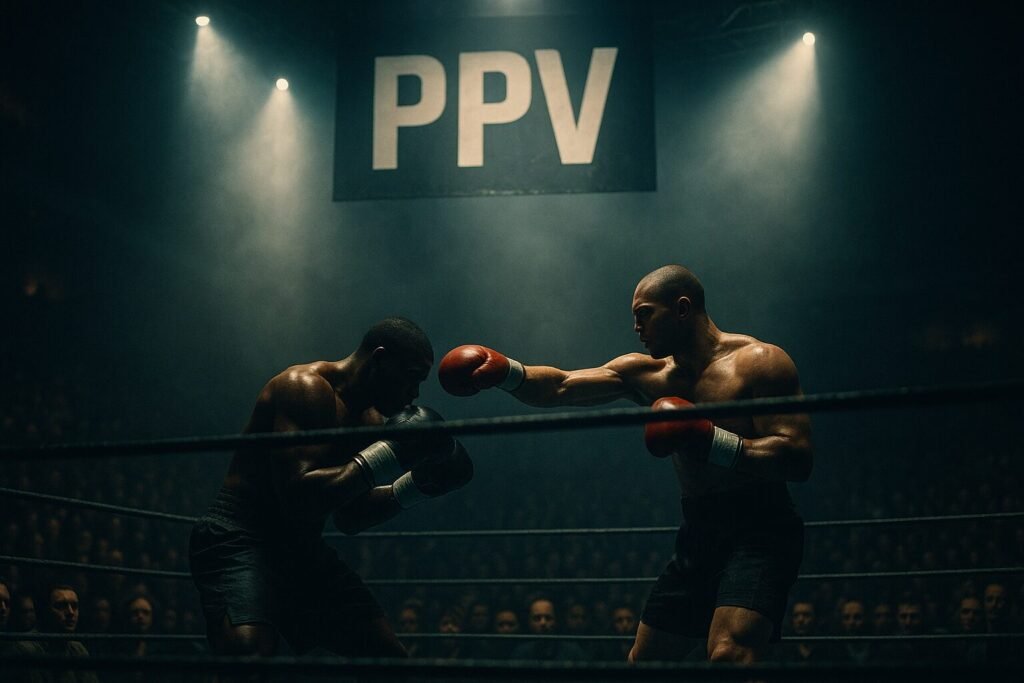The Glory Days of Saturday Nights
When I grew up watching boxing, it wasn’t complicated. You stuck on Sky Sports on a Saturday night and got a cracking card with recognisable names and genuine talent. You didn’t have to think about whether it was “worth” paying an extra fee. It was accessible, predictable, and part of the weekly rhythm for casual fans.
That was how fighters became household names. Stars were built not just by big paydays but by consistent exposure. When your nan could recognise Ricky Hatton or Naseem Hamed just by flicking through the channels, you knew boxing was healthy.
Fast forward to today, and that world has all but gone. Sky no longer has the bulk of UK boxing. DAZN stormed in promising to be the “Netflix of boxing”. One flat fee, everything included, no more PPVs. Sound familiar?
The Netflix Promise (Broken)
Here’s the kicker: Netflix doesn’t charge you twice. You don’t sign up for your monthly subscription and then find a second paywall for the latest season of Stranger Things. Yet that’s exactly what DAZN has done with boxing.
We now have DAZN subscriptions plus DAZN PPVs — effectively “Netflix Plus” for live sport, only without the honesty of calling it that.
The frustration is that DAZN didn’t just arrive as another broadcaster. It arrived with a manifesto: make boxing affordable, simplify the model, open the doors to everyone. Instead, fans are paying more than ever and getting less for it.
What Warrants PPV?
The very idea of pay-per-view was that it was special. Reserved for the biggest nights. The Lennox Lewis era. Ricky Hatton chasing the dream. Floyd Mayweather redefining the sport. These were nights where the spectacle matched the cost.
Now? Let’s look at the recent line-ups:
- Daniel Dubois vs Oleksandr Usyk II – fair enough, that’s a world heavyweight championship fight. Call it PPV.
- Jake Paul’s shows – divisive, but built on crossover spectacle, so you can argue the case.
- Dillian Whyte’s return in Riyadh last Saturday – this wasn’t even a fight worth building a PPV around. Whyte looked poor, lost his footing, and the whole thing fizzled out in minutes.
Outside of that, you’ve got a growing list of mid-tier contests slapped with a PPV price tag. Fights that, ten or fifteen years ago, would’ve been comfortably tucked into a Sky Sports Saturday night broadcast.
This isn’t just about money. It’s about devaluing the very concept of PPV itself. If everything is “special,” then nothing is.
The Business Excuse (and Why It Fails)
Promoters will tell you they have to put on PPV shows. Fighters want million-pound purses, networks want to balance the books, Saudi investors want their return. But here’s where the excuse rings hollow:
We’re living through a cost-of-living crisis. Families are cutting back. People are juggling bills, fuel, food. Boxing fans are loyal, but they’re not mugs. If you make them pay £25–£30 on top of a monthly subscription for a fight that ends in three rounds, they’ll simply stop buying.
Unlike football, where season tickets lock fans in, boxing doesn’t have that cushion. Alienate your audience and they won’t just skip one fight — they’ll walk away altogether.
Accessibility = Growth
Here’s the bit promoters seem to forget: making fights accessible isn’t just a fan-friendly option — it’s smart business.
When the next generation of stars like Moses Itauma or Adam Azim are hidden behind PPV walls, their audience shrinks. Casual fans never stumble across them. They never become mainstream names.
Accessibility is how you grow the sport. Anthony Joshua became a household name before PPVs dominated his career. Ricky Hatton became a cultural icon because everyone could see his fights. Compare that to now, where up-and-coming talent can’t get past the gatekeepers of a paywall.
If boxing wants a future, boxing PPV accessibility isn’t just a talking point — it’s survival.
Where Do We Go From Here?
The fixes aren’t complicated:
- Keep PPV for genuine mega-events. Fury vs Usyk, yes. Paul vs KSI, fine. But not every half-decent card needs to be premium-priced.
- Deliver on promises. If DAZN sold itself as the “Netflix of boxing,” then stop hiding content behind a second paywall.
- Think of the fans. A family deciding between heating or eating isn’t going to pay £30 for a middling fight. Build audiences first, cash in later.
Boxing’s future depends on rebuilding trust. Not through gimmicks, not through endless PPVs, but by putting fans first again.
Final Bell
Boxing has always balanced business with sport. But right now, the balance is broken. Promoters and broadcasters are risking long-term loyalty for short-term cash grabs, and fans are noticing.
So the question remains: is pay-per-view killing boxing’s accessibility? Or is it just the unfortunate price of modern sport?
I’d love to hear your take. Drop a comment, share this with a mate who complains about PPV costs, and head over to CMBoxing.co.uk for more opinion pieces that put the fan’s perspective front and centre.

